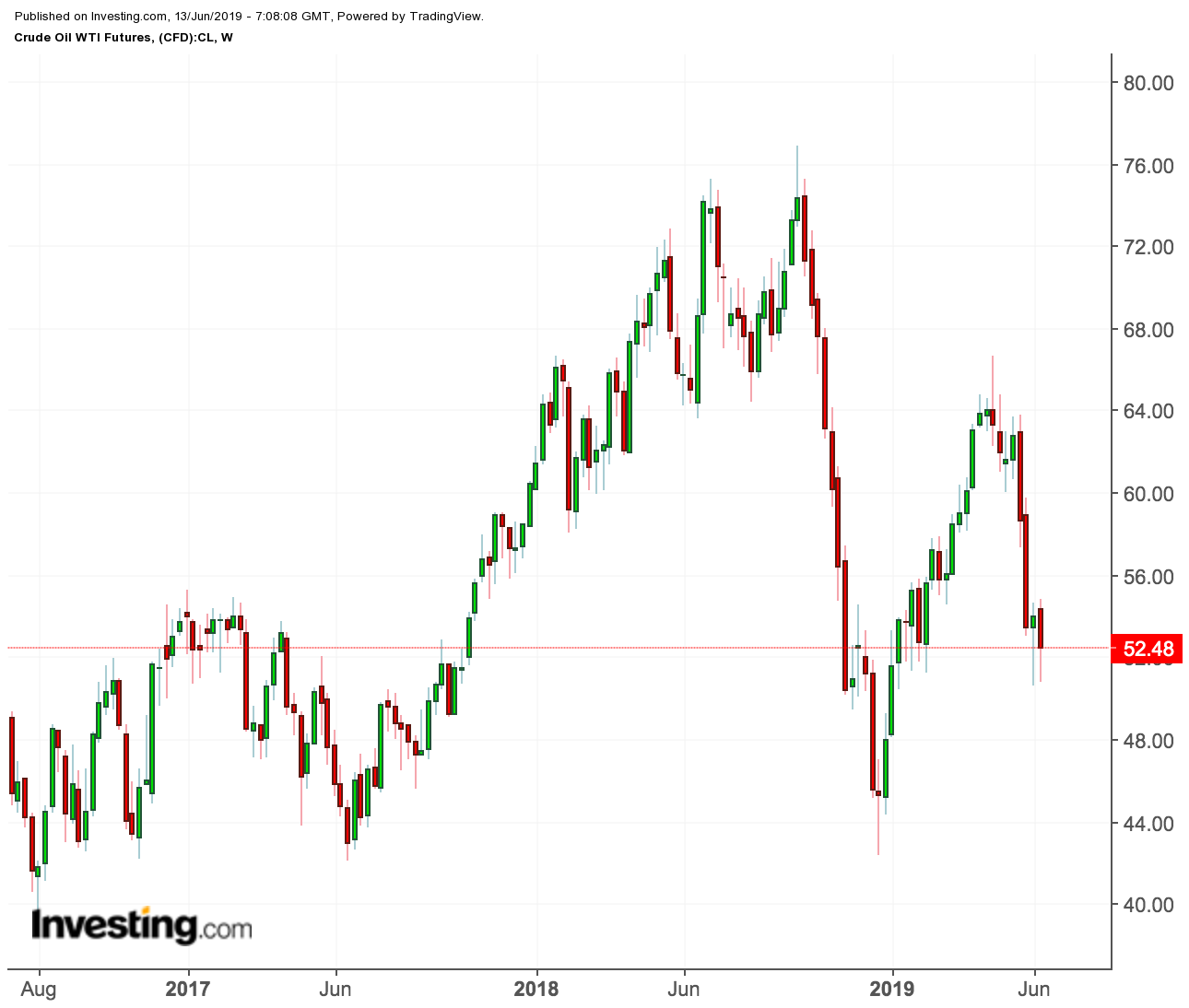BP Plc, the British multinational oil and gas company, just released its Statistical Review of World Energy 2019 edition. The report examines key trends in energy from the 2018 calendar year.
CEO Bob Dudley focused his introduction to the report on the issue of carbon emissions and the attempt to transition to lower carbon energy sources. However, the report does contain some interesting data for oil and energy traders including information on oil reserves, energy demand and natural gas.
Here's a closer look:
1. Oil Reserves
BP increased its estimate of total proved oil reserves in Saudi Arabia and the United States. At the end of 2008, Saudi Arabia had 264.1 billion barrels of proved oil reserves, according to BP. At the end of 2017, that number increased to 296 billion barrels. At the end of 2018, BP reports that Saudi Arabia had 297.7 billion barrels.
These numbers would put Saudi Arabia’s share of the global total proved reserves at 17.2%, second in the world and just 0.3% behind Venezuela. This highlights just how important management and accessibility are in translating oil reserves into wealth.
According to Platts, Venezuela only produced 720,000 barrels per day in May even though it has more oil than any other country. The BP report sets the U.S. proved reserves at 61.2 billion barrels.
While some producers are not reliable—Venezuela and Nigeria come to mind in the short term, but Russia could be a good example for the longer term—the U.S. and Saudi Arabia are more stable. For instance, Aramco prides itself on 99% on time delivery to its clients and U.S. producers benefit from the stable political and legal situation in that country.
The higher reserve numbers for the U.S. and Saudi Arabia should provide some comfort that supply will be available for a while.
2. Energy Demand
According to BP, “primary energy consumption grew at a rate of 2.9% last year.” This is almost double the 10-year-average growth rate. To be sure, there is a big difference between oil demand and overall energy demand.
However, the BP report should give pause to those who are completely committed to the idea of falling oil demand or even peak oil. Oil markets are generally obsessed with the idea that the economic slowdown will cause the demand for oil to collapse.
In fact, WTI was down about 3% midday Wednesday after the EIA reported a build in oil stocks and lowered its forecast for demand growth in 2019 again. The BP report should remind market watchers that even though organizations and banks are cutting their forecasts for oil demand growth in 2019, the world still needs energy in general—and more of it.

More people in the world drive vehicles and have electricity than ever before. Overall energy demand will continue to grow as the global population continues to grow and communities continue to develop.
For the time being oil is still a component of that energy mix, but how big of a component is what matters. As energy requirements keep growing, oil demand can only fall in the long term if something better replaces it.
3. Natural Gas
Natural gas demand grew by 40% in 2018—more than that of any other form of energy. Interestingly, demand growth for natural gas was largest in the United States.
We hear a great deal about China being the largest market for natural gas, and China was the second largest source of demand growth for natural gas. However, the news about U.S. demand reminds us that even though the United States has long been a developed economy, its energy consumption is still growing at accelerated rates and its power sources are still evolving.
There are indications that economic growth in the U.S. is only being curtailed by uncertainty surrounding the trade dispute with China. If that is resolved, U.S. economic growth could swell—and with it energy demand.
Natural gas would be especially impacted by a surge in the U.S. economy, because the number of natural gas-fired power plants has increased in the U.S. A trade deal with China would also increase Chinese demand for American natural gas, which can be exported to China as LNG.
